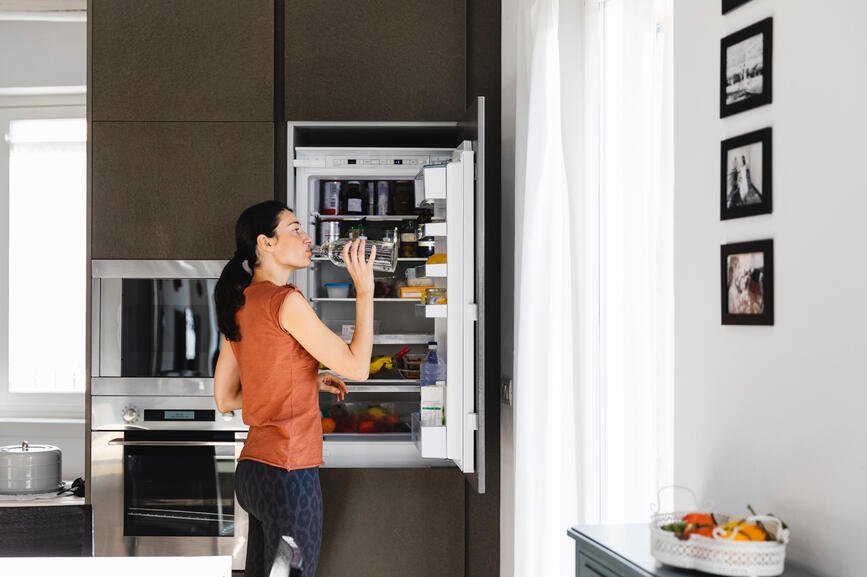This Is What Cardiologists Recommend Eating Before and After Every Workout
Remember that exercise isn’t the only way to keep your body strong, energized, and running smoothly. Rather, what you eat before and after your workout is just as important as the exercise itself.
In the Robert and Suzanne Tomsich Department of Cardiovascular Medicine and the Sydell and Arnold Miller Family Heart, Vascular & Thoracic Institute at the Clev
We asked Dr. Singh what she recommends eating before and after every workout to properly fuel and refuel your body so you can keep performing at your peak—and feeling your best.

Pre-workout food ideas from a cardiologist
While you shouldn’t eat a full meal before going for a jog, your body should be properly nourished before doing so. “I usually recommend a small snack about an hour before exercise to improve energy, performance, and mental clarity,” says Dr. Singh. “Keep in mind that longer workouts and/or more intense sweat sessions will require more pre-exercise fuel than that.” I recommend simple carbohydrates, which your body can access faster than fats or proteins during exercise. These take longer to digest and use, causing gut discomfort. “
Dr. Singh suggests an apple, banana, toast, or bagel as simple snacks. Pre-workout food should include protein like nuts or peanut butter an hour before longer or more difficult exercises.
Keep hydrated, she adds. “Electrolytes are critical in preventing dehydration and electrolyte imbalances, which can lead to significant performance loss.” Add a Nuun tablet to your water bottle or a low-sugar bottled drink from ROAR Organic or BODYARMOR for an electrolyte boost.
What to eat after exercise to recover?
Dr. Singh advises against rushing through your day without refueling after a hard workout, especially if you want to maximize your hard-earned gains. “Post-exercise hydration and electrolyte replacement are extremely important, especially if you sweat a lot or completed an intense, long workout, or in hot weather,” she says.
So, what to eat? “For post-exercise fuel, a 4:1 carbohydrate to protein ratio is commonly recommended, depending on exercise duration and intensity.” That means you should eat a lot of whole-grain pasta, bread, and other grains to help your body recover. “I usually recommend whole foods over processed foods,” Dr. Singh says. You can also modify your diet based on your recent workout. Inflammation can be reduced by consuming antioxidant-rich foods and protein (such as chia seeds and flax seeds), according to Dr. Singh.
And while you may be tempted to reach for the bran flakes after your workout, Dr. Singh advises against it. “After a long workout, the gut may struggle to digest a lot of fiber. “If you have digestive issues, I recommend simple carbs low in fiber, followed by more nutritious foods,” she advises.
What ingredients (pre-workout or not) are best for heart health?
Dr. Singh has plenty of suggestions for changing your diet to improve your overall cardiovascular health (whether or not you exercise). The more plants you eat, the better, she says. These diets are full of nutrients that have been shown to lower cholesterol, blood sugar, blood pressure, and cardiovascular morbidity.
They are also rich in micro-and macronutrients that our bodies require for optimal athletic and cardiovascular health. Remember to eat plenty of fresh fruits and vegetables as well as unsaturated fats from foods like olive oil, avocado, and nuts.
What foods should I avoid for a heart-healthy diet?
While moderation is important in any healthy diet, Dr. Singh takes it easy on certain ingredients. “I usually advise moderation when it comes to red meat, saturated fat, and added sugar,” she says. “The more whole, unprocessed foods you can eat, the better.” This is suitable for the Eating Before and After Every Workout routine, as well as your daily health.

